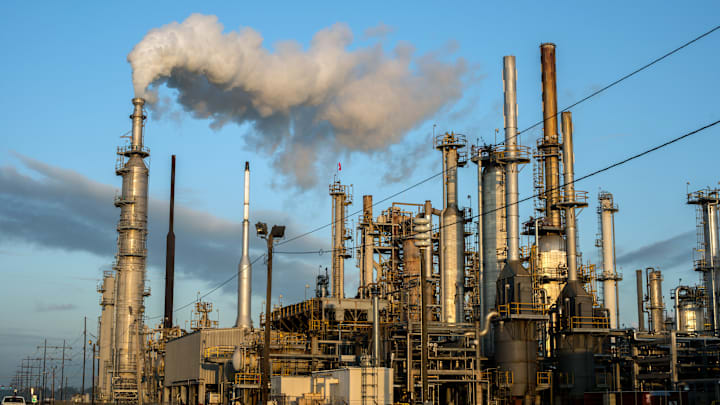Leaf-peepers flocking to Vermont to appreciate its fall foliage this season can rest assured that every breath of fresh air they take there is actually fresh. According to rankings from U.S. News & World Report, the Green Mountain State has both the lowest levels of industrial toxins and the lowest pollution-related health risks in the country—making it America’s least polluted state.
The title for America’s most polluted state, meanwhile, goes to Louisiana, with the second highest pollution health risks and the third highest levels of industrial toxins. The Pelican State has a reputation for air pollution, especially in the industrial region that stretches from New Orleans to Baton Rouge. That area is sometimes referred to as “Cancer Alley” due to the higher-than-normal cancer rates among residents, particularly in low-income communities.
U.S. News & World Report based its rankings off two 2019 datasets created by the Environmental Protection Agency—one that measured a state’s “total toxic chemical pollution … per square mile of land area,” and another that evaluated “long-term, chronic human health effects of toxic chemical pollution, such as birth defects and cancer.” Some potentially pretty significant pollution sources are excluded from these analyses, including agriculture, transportation, and wildfires. It’s also worth emphasizing that the data is from 2019, and, as anyone who’s heard the word pandemic knows all too well, a lot can change in three years.
In other words, this isn’t the single definitive ranking of most polluted states. But it can serve as a general idea of which states have a bigger chemical toxin problem than others. Nevada, Indiana, Delaware, and Utah rounded out the top five. See if your state made the top 20 below, and check out the full list here.
- Louisiana
- Nevada
- Indiana
- Delaware
- Utah
- Ohio
- Oregon
- Tennessee
- Illinois
- Alabama
- Texas
- Pennsylvania
- New Jersey
- West Virginia
- Arkansas
- Kentucky
- Michigan
- South Carolina
- Virginia
- North Carolina
